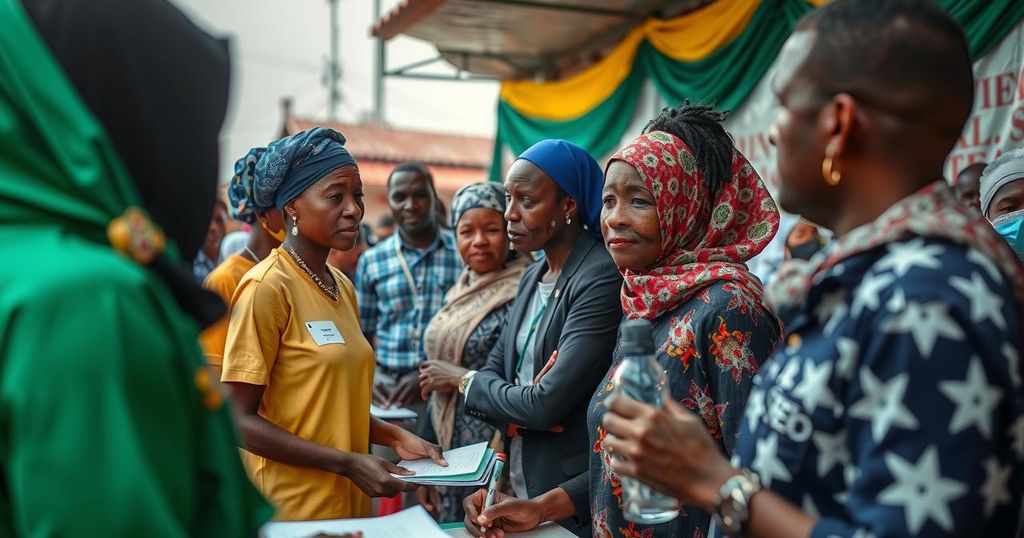Senegal’s Elections: A Crucial Vote for President Faye’s Reforms

Senegal held parliamentary elections to decide if President Bassirou Diomaye Faye can implement his promised reforms. With 7 million registered voters, the elections are crucial amid rising youth frustration over economic issues. Faye requires a majority in the National Assembly to proceed with reforms promised during his campaign, following his anti-establishment victory in the presidential election. The process was marked by political tension and threats to the stability of Senegal’s democratic institutions.
In Senegal, polling stations closed on Sunday after a parliamentary election that aims to establish if President Bassirou Diomaye Faye can execute his proposed reforms. With over 7 million registered voters participating, they elected 165 lawmakers to the National Assembly, where Faye’s political party currently lacks a majority. Faye, elected in March on an anti-establishment promise, contends that his inability to implement reforms—such as combating corruption and managing natural resource allocations—is due to this parliamentary imbalance. Following the dissolution of an opposition-led parliament in September, this election became crucial for Faye’s agenda. The election, occurring under heightened tensions, involved Faye’s party, PASTEF, challenging the Takku Wallu opposition coalition led by former President Macky Sall alongside other parties. The first provisional results are anticipated by Monday morning, with the final tally expected later in the week. PASTEF requires a minimum of 83 seats to secure a parliamentary majority—a possibility acknowledged by analysts observing the party’s popularity. Faye, at just 44 years old, was elected as Africa’s youngest leader, reflecting the restlessness of Senegal’s youth toward political stagnation.
In March, following months of civil unrest, Bassirou Diomaye Faye won the presidency with a majority vote, advocating for significant reforms aimed at enhancing governance and addressing economic hardships—particularly those affecting the youth. Given that over 60 percent of the Senegalese population is under 25 years of age and facing economic struggles amid rising inflation, the stakes of the recent election represent not just a contest for power but an attempt to reshape the future of Senegal. The violence and uncertainty surrounding the electoral process have also shed light on Senegal’s struggle to maintain its democratic reputation in a region where power transitions are frequently marked by turmoil.
The recent parliamentary elections in Senegal are pivotal for President Bassirou Diomaye Faye, who seeks to implement key reforms that were part of his election campaign. With his party needing an outright majority in parliament to advance these initiatives, the outcome of the elections, marked by past political instability and protests, could redefine the landscape of Senegal’s democracy. Although Faye has called for peace and respect for the electoral process, the road ahead remains uncertain as Senegal navigates through its political challenges.
Original Source: www.pbs.org







